Only back in May, 2023, the UN General Secretary released this report. It outlines a ‘Global Digital Compact’, which promises - as per usual - the express opposite of its premise.
I know, I know - who would have thought! I bet you didn’t see that one coming!
Now, I’ve spent a fair bit of time drumming up material on the clearly coordinated nature of the various ‘Online Safety Acts’ working their way through various parliaments, examples here being the UK, Ireland, New Zealand, Australia, France and Germany, the EU, Canada, and so forth.
I’ve trawled through international institutions, like WEF’s Global Coalition for Digital Safety, which in turn involved ofcom, and specifically Gill Whitehead. I’m still not sure why a public servant serves a group of billionaires, I guess it’s just one of those WEF things.
I’ve also trawled the history of the likes of David Sullivan, who I took an instant disliking to, specifically because his deceptive use of words just comes across impressively arrogant.
Sullivan also is involved with the ‘Digital Trust & Safety Partnership’, and the ‘Global Network Initiative’.
At Global Network Initiative, he worked with David Kaye. This guy. And in this capacity, if there’s one person who you should not trust on ‘free speech’ it’s him.
Here, in just four tweets, he mocks anyone subscribing to actual free speech, outlines his exemptions to ‘grade school version’ of said, with exciting additions such as ‘respect of reputation’ (unless, the reputation is that of Elon Musk, clearly), ‘national security’ (which has been grossly abused repeatedly certainly since 2016), and ‘public health and morals’, where I can only assume by health he means some lie about Covid ‘misinformation’, and finally by ‘morals’ he meant whatever his ilk finds offensive. In other words, his ‘exemptions’ means it’s absolutely legit for him to brand you a fascist, a covid denier, climate change skeptic, … well, anything, really. You are the unwashed masses.
These ‘definitions’ are completely arbitrary and entirely beholden to which judge is in court on the day. And those who disagree, us ‘grade-schoolers’, would definitely be targeted by someone who has the audacity to communicate in this manner. Was he perchance bullied in school?
This guy really is a piece of work, because he get around. He’s in a lot of these fake organisations.
And most of those organisations furthermore are chock full of like-minded individuals, who only have one thing on their minds, it appears.
To make sure you stay quiet. You are not to speak, unless spoken to.
But the worst of the organisations by far? Here it is. Yes, that’s right. David Kaye was with the United Nations between 2014 and 2020. And what did he expressly deal with? 'the right to freedom of opinion and expression’. This is an absolute sick joke, but unfortunately, this is really only the beginning of this story.
Because my efforts to track this down to source generally led me to this lady, Susan Ness. Leader of the little known ‘Transatlantic High Level Working Group on Content Moderation Online and Freedom of Expression‘.
Here’s a picture of them all, unfortunately not all could make it on the day; a notable exemption is the UK Tory MP Damian Collins.
And, in this regard, notice how David Kaye also turns up here. Inaugural meeting took place on the 28th of February, 2019. Fortunately, Damian Collins did show up for that. And let me just point out their express purpose while at it.
So, lets recap.
The member of parliament who in the UK is pushing the hardest for the ‘Online Safety Act’ is in a working group decicated to censoring free speech online. And furthermore, the group itself is absolutely riddled with WEF members.
I can continue here that he also was very much pro-vaccine to the point of discrimination, and that he championed every ridiculous ‘Russia-Brexit’ rumour. But I have to cut it short here, because this isn’t ultimately about him. He’s a symptom, not a cause. A terrifying symptom, sure, but a symptom nevertheless.
I do want to point this one out, however, as it’s so egregious.
In what can best be described as another sick joke, he invited two members of the TWG onto his broadcast, yet in the description omitted the detail that he, too, was a member at the time of said broadcast.
It’s a blatant, raging lie by omission.
But back to Susan Ness. Here she is, being the ‘nonresident senior fellow of Atlantic Council’ that she is.
But, I really did struggle to track this back to its roots. There are so many shell organisations in this field, and they all promote the same thing. The investment in censorship must be major.
I do want to call out Susan Ness here. She promoted the exact same stragegy we’ve seen repeatedly. Break up ‘x’ into bits, and then overturn them individually. It’s a complete and utter betrayal of democratic principles, though she will obviously lie about it all day long, being on not only the Atlantic Council, but also explicitly in a group who think you should be silenced for suggesting, say, that covid-19 was a scam.
And don’t for a second be so naive to think that said ‘perspectives’ consider you in equal light. It’s just more rhetoric open to interpretation, where said openness will be only ever be used against you.
Anyway, she too ultimately is a red herring in this regard. But what isn’t is the article I posted at the beginning of the article. The ‘Global Digital Compact’.
Most will realise the naming similarity with the travesty of the document that is the ‘Global Compact for Migration’. I will leave that for another day, but whenever you hear ‘human right’, be aware that this is a rhetorical device commonly used by all flavours of Marxists. Because said ‘human rights’ only ever apply in one direction, and it’s not in your benefit.
So let’s see what this ‘Compact’ proposes. Here’s the introduction and page 9, which is where they start to reveal their true intentions.
‘The onus for safery should not lie with users’. No, prole, you can’t be trusted to protect yourself. We need to do it for you.
This is straight up typical authoritarian claptrap. ‘It’s to protect you’.
It only goes downhill from there from there. ‘Online Safety Commissioners’, who have ‘shared understandings’ and are there to ‘protect you against harm’. In other words, there’s no room for interpretation, and should you dare to commit wrongthink… well, better not.
They furthermore demand a ‘human rights advisory mechanism’ at the UNHCR. They will probably all be ‘aligned’ as well, after all, they’re probably the ones hiring said ‘commissioners’.
And it will protect women, children, young people, older persons, persons with disabilities, indigenous peoples, and ethnic, religious, and linguistic minorities. That’s a very round about way of putting it.
I could go on, but is there a point. This is basically the ‘Online Safety Act’, except the local versions have been modified to suit the nation in question.
This document was released in 2023, so it still leaves some questions. From where does this originate?
Commonly, a good source of links can be found in footnotes and appendix. And this document repeatedly throughout refers to ‘Unesco’ and the ‘Broadband Commission’.
Unesco in 2017 released this report. It covers 2007-2015, so this is planned well in advance. And in some ways, this can be seen as the thin end of the wedge. I won’t spend too much time on this, but surely the intent here is to introduce a level of doubt into the system. Some room to maneuver. Some flexibility of outcome, which can be put to good purpose down the road.
This is about journalistic integrity, and whistleblowing.
It proposes 'exceptions’ where there is greater ‘public interest in disclosure than in protection’ - which is essentially entirely a judgment call. In those cases, this should be bounced to an ‘independent’ judicial process, which definitely hasn’t been corrupted, just like the Mission Zero ‘independent’ review, or the Covid ‘inquiry’.
But that’s just the start, because the other link to the Broadband Commission is by far the more interesting. Why? Because it’s a UN project in collaboration with the ITU. And who is the ITU you wonder, well that’s a good question because it’s a specialised agency within the United Nations. No, really. The Broadband Commission is a United Nations collaboration with itself!
First, we find a working group on ‘Education and Online Safety’. Children. Ah, the old trick of the dictator, ‘but what about the children’. The work kicked off in September, 2018, so before we saw more aggressive ‘Online Safety’ demands.
In here we find the document on Child Online Safety. Released in 2019, it IS an Online Safery Act of sorts. But it’s quite light. It feels really half-hearted.
Early version.
Strange, really, as it’s authored by top men and women.
Right, back up to the broadband commission’s site. They have a different section. Misinformation. But of course. Misinformation is obviously much worse than child abuse, it has to be in there.
Bullseye. Let’s see what we can find in here. And, frankly, I cannot be bothered with the full version because it’s obvious what this is about. Here’s the executive summary.
Hang on to your hat, because this is worse than I expected - though it starts off in friendly fashion, of course. It always does. ‘See, we agree on a lot of these things’.
It doesn’t take long before we’re in at the deep end. We must trade ‘disinformation’ (as defined by the UN) for ‘free speech’ (also defined by the UN). What could go wrong?
Sadly, we’re still just getting started. There really is just one page you need to see in this document, and it’s page 8.
I’m sure the full document hides more atrocities, but to me, this is enough. This is a declaration of intent, and the intent has nothing to do with the stated purpose.
They will want power to shut you down for anything, while preserving the - or, perhaps more apt - THEIR media’s right to lie with impunity, and add ‘fact checks’ where applicable. Which will then, in turn, be used to censor your ‘free speech’ as you just posted ‘misinformation’.
Also note that the reasons stated beyond health include ‘political disinformation’, ‘hate speech’, and ‘climate change’. All bases covered.
Let’s now have a look at their absurd, proposed ‘framework’, which follows. It’s basically a predictable one-way only. This is legit the sort of ‘legislation’ I’d expect to find in the Soviet Union.
Not that I have any particular interest in looking.
There’s really a few things left to do at this point. The first is to establish when this work was commenced. Oh, April 2019. After version 1.0 aka the ‘Child Online Safety’ document, and right as the calls of censorship grew loud.
And the first proposed whitepaper of sorts debated by a parliament? That would be the UK’s ‘Online Harms White Paper’, which was released in… April, 2019.
And David Kaye? Yeah, he’s in there too. But don’t worry. In an ‘independent’ capacity.






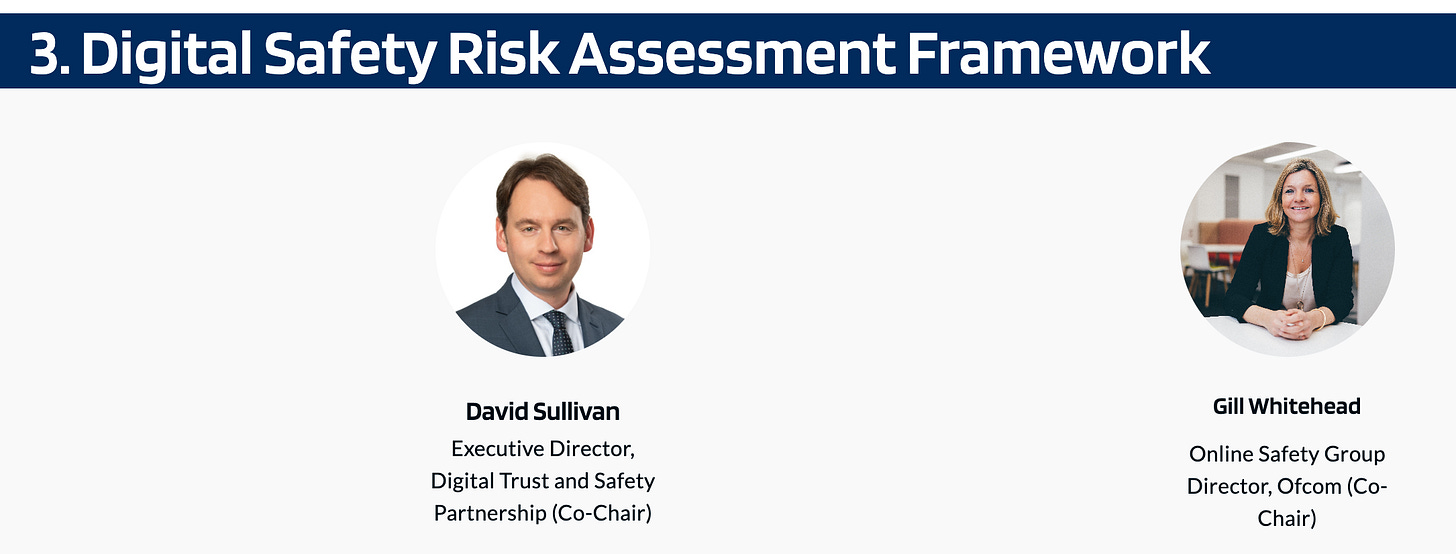


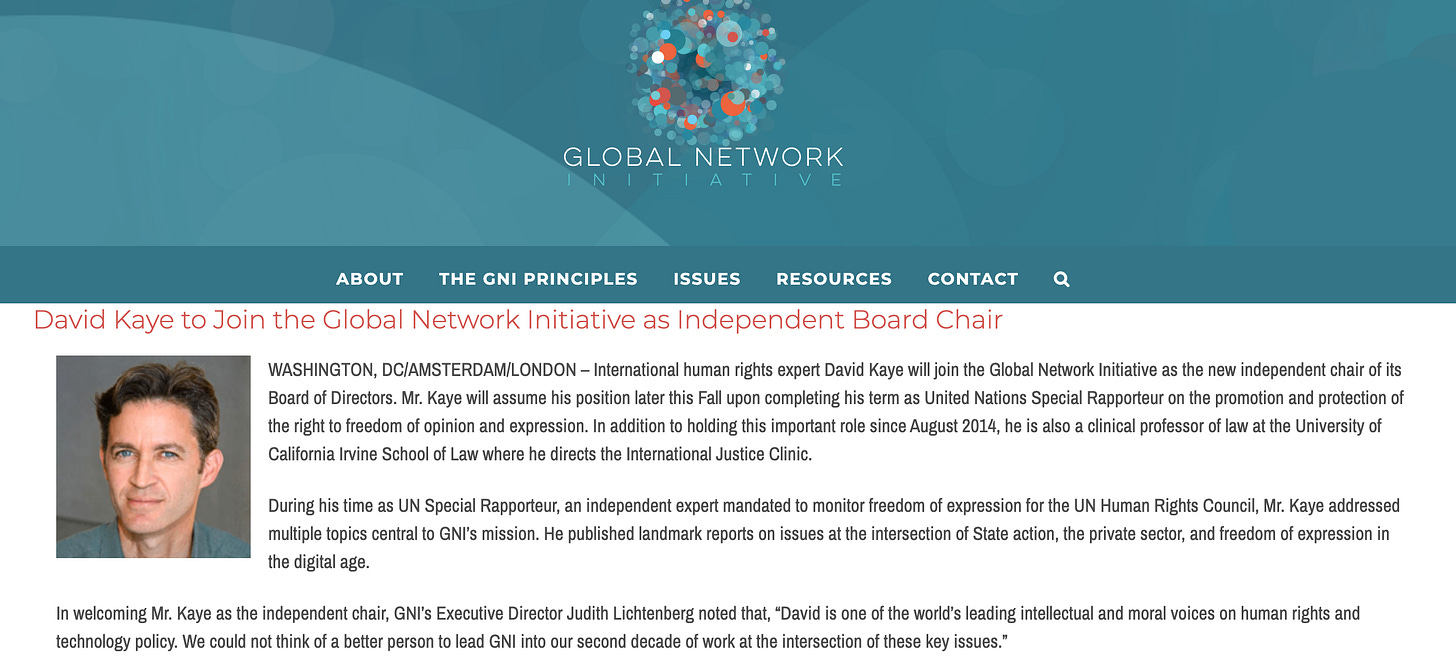





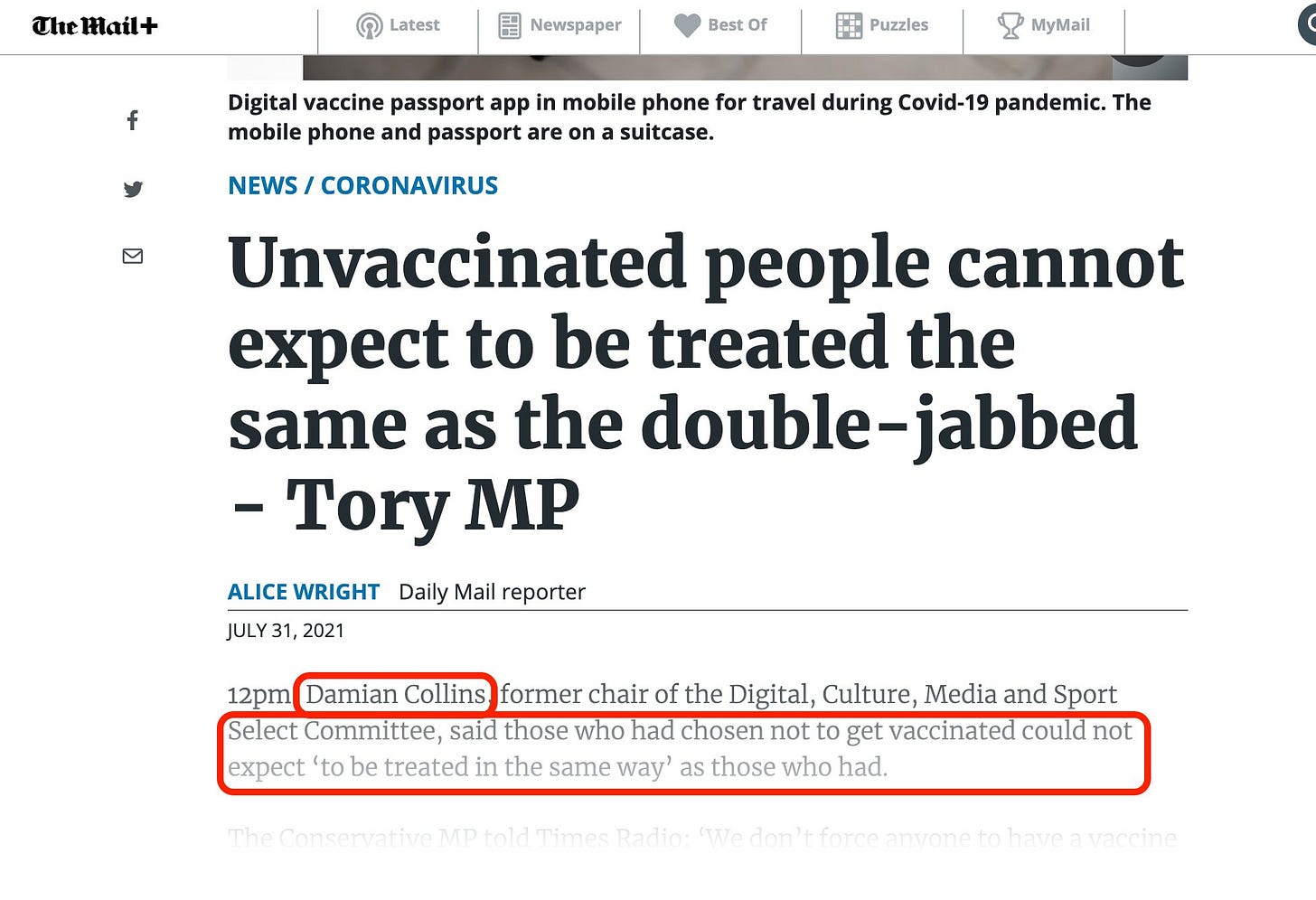
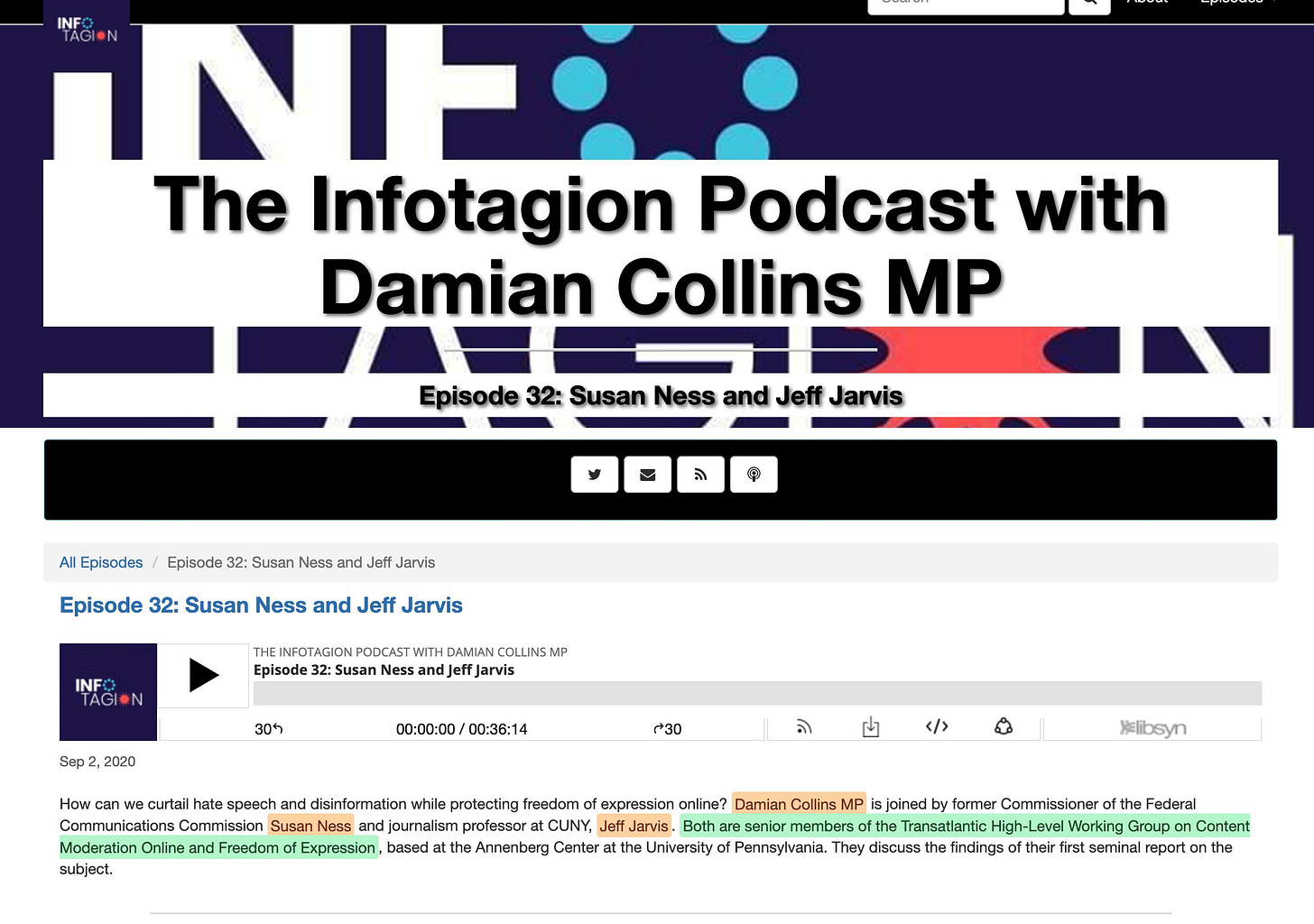
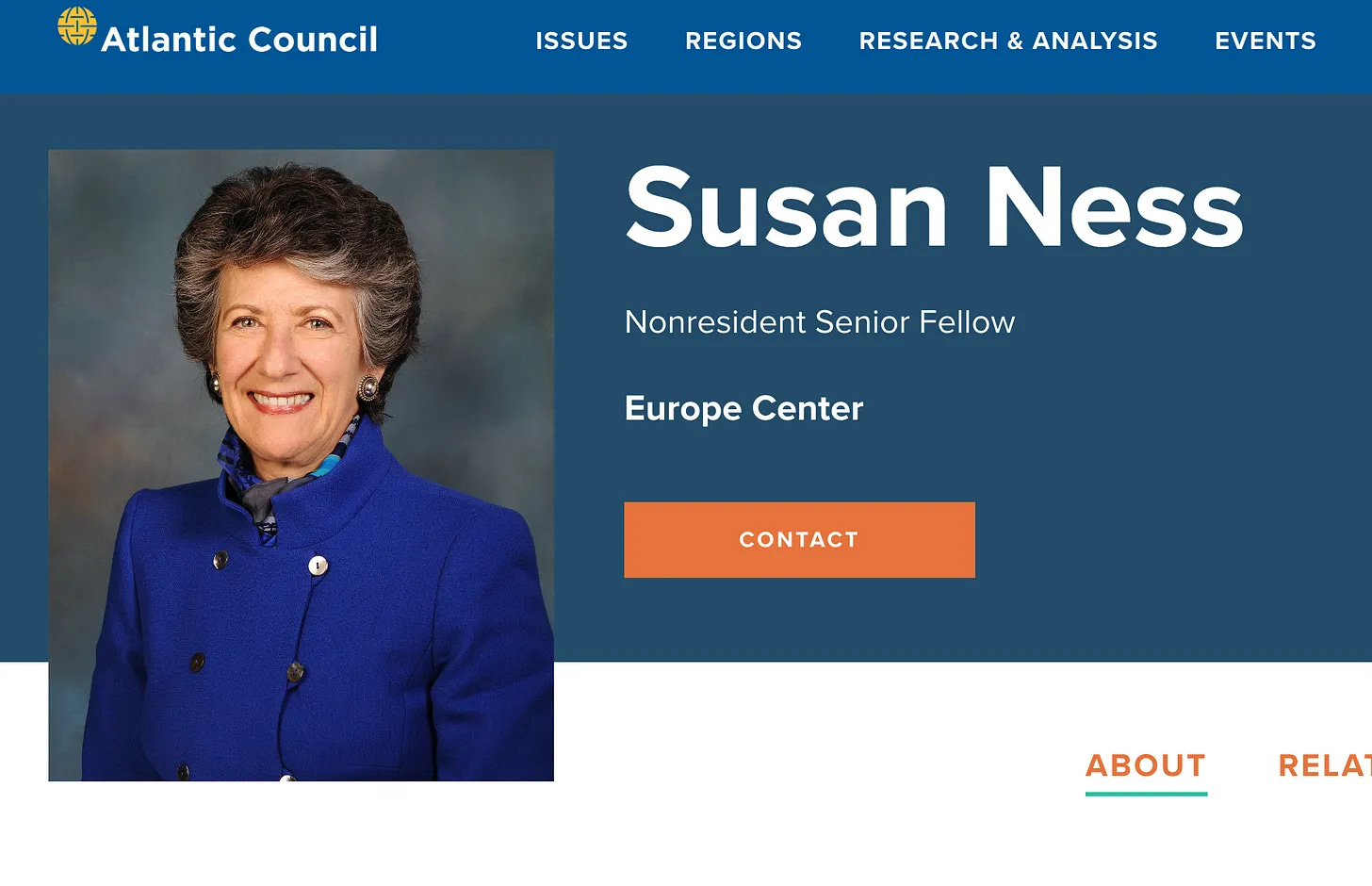












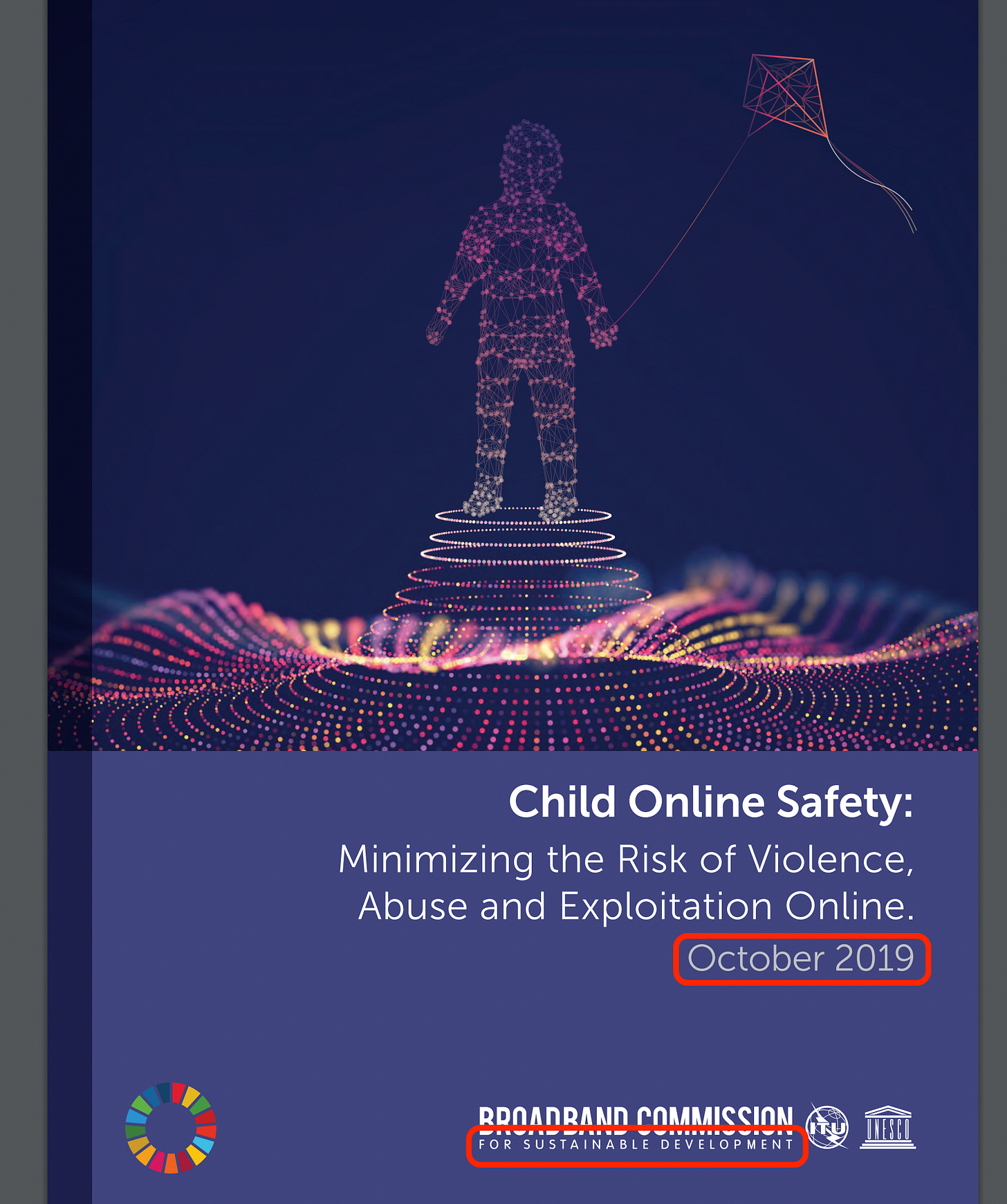
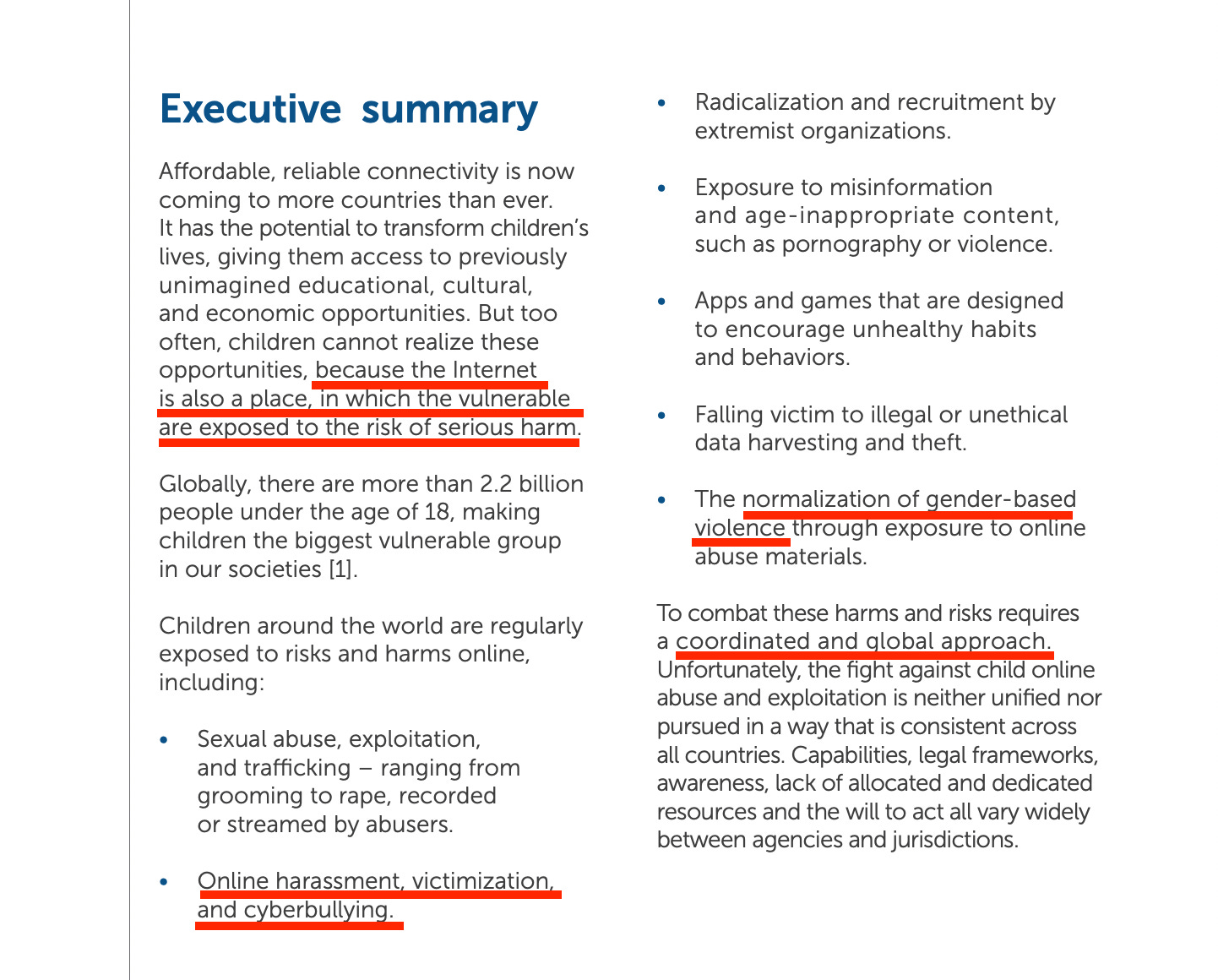
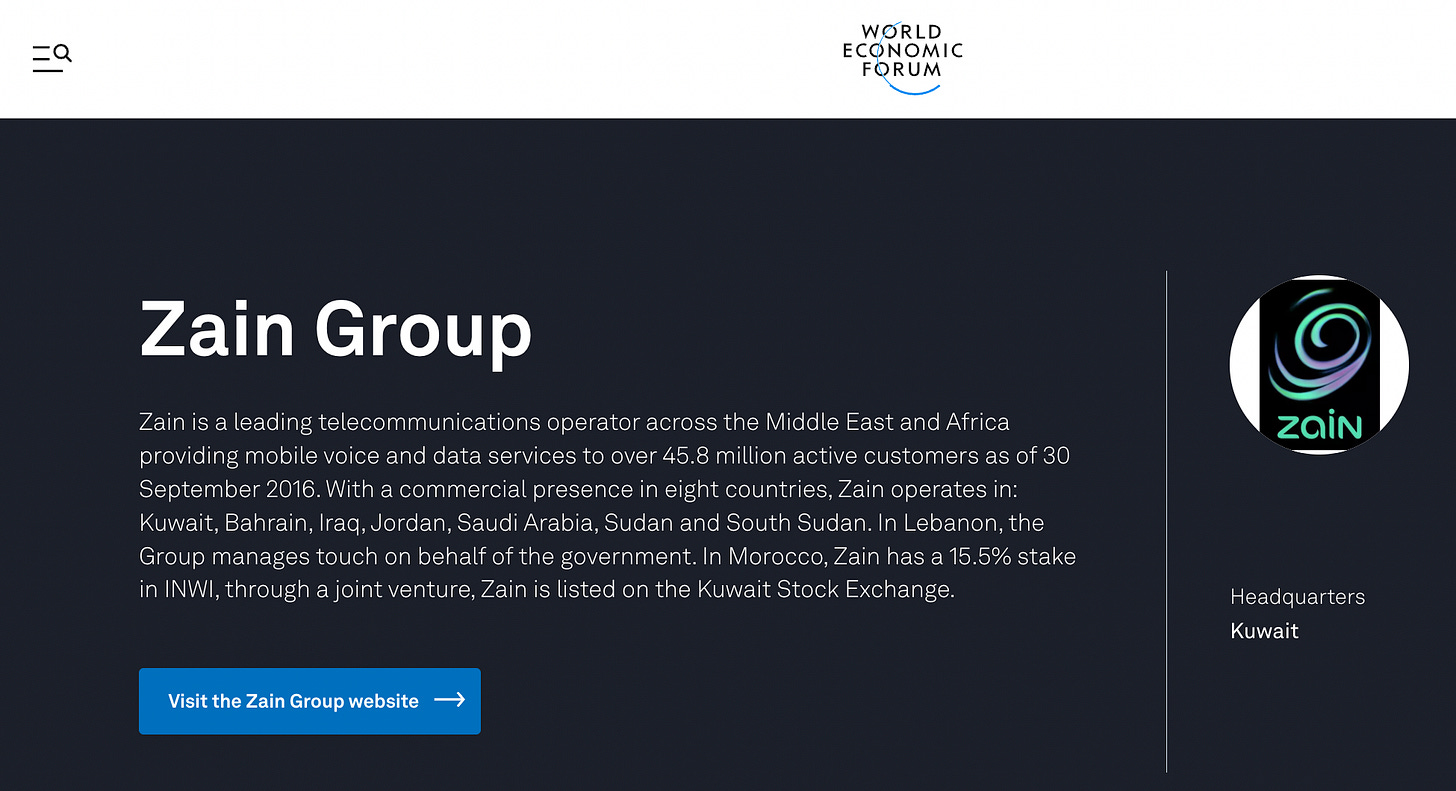


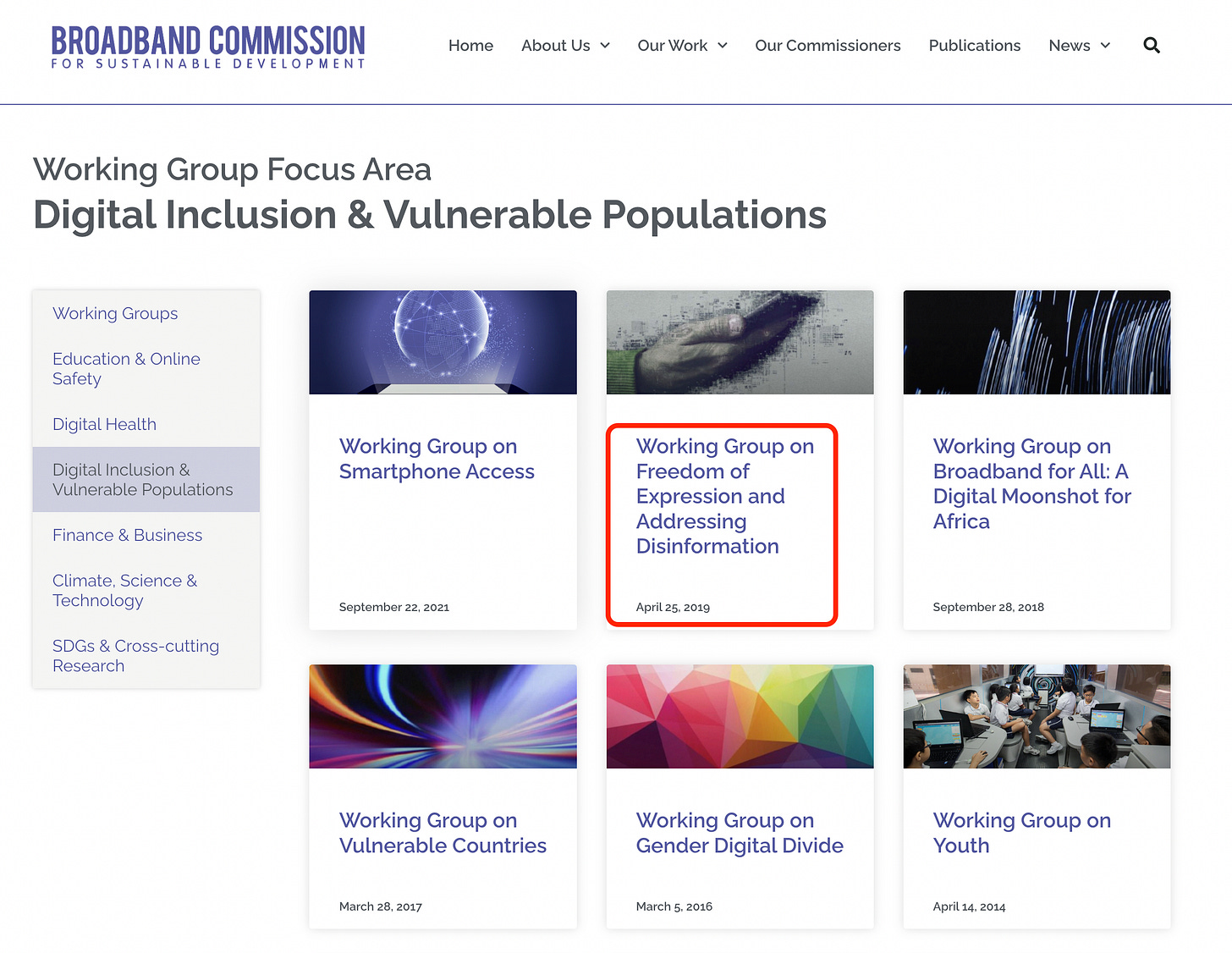


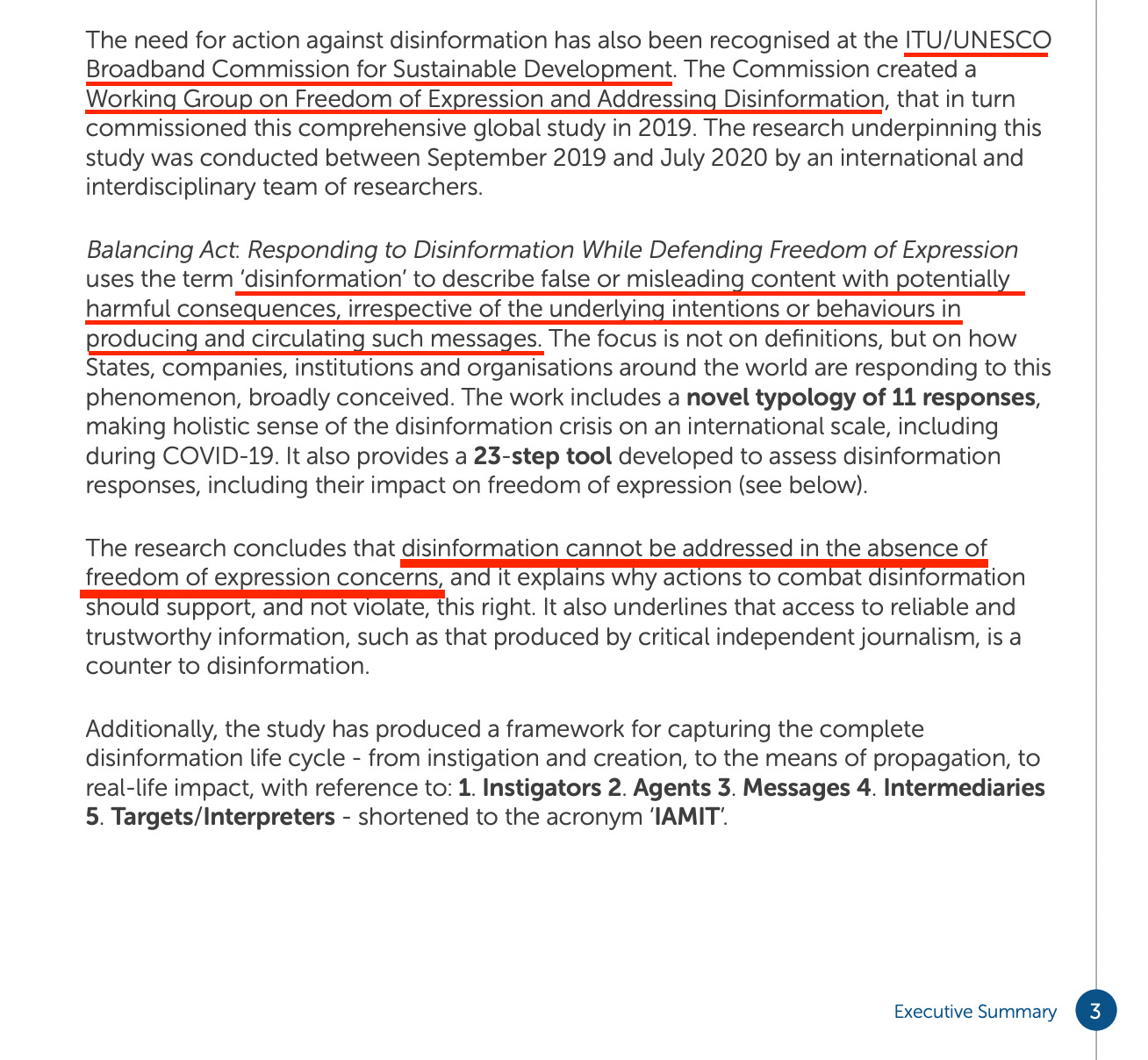









How the hell are we supposed to get around that level of censorship?